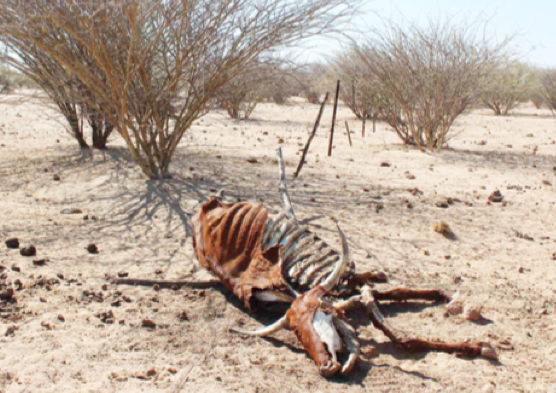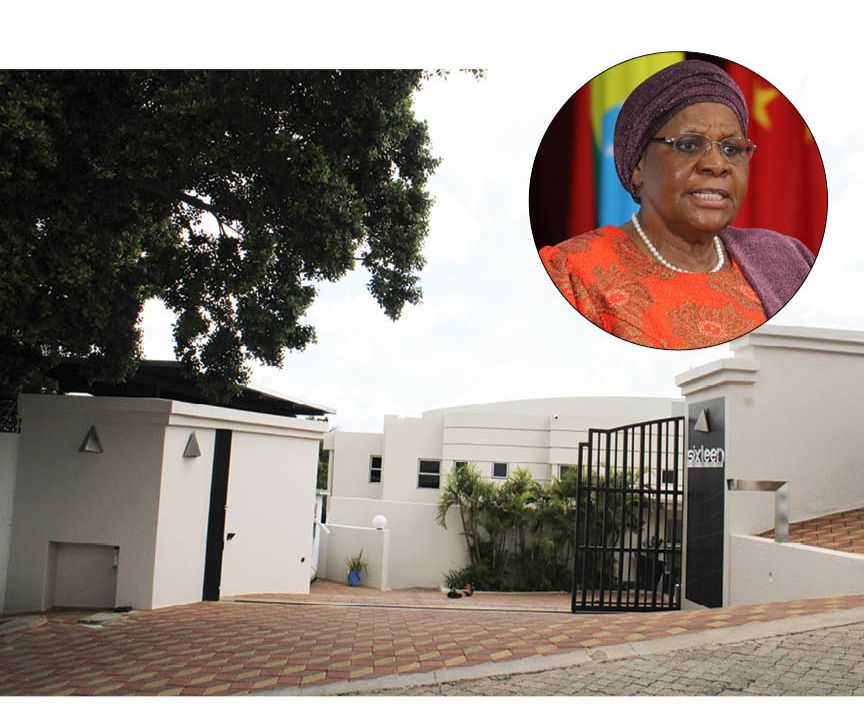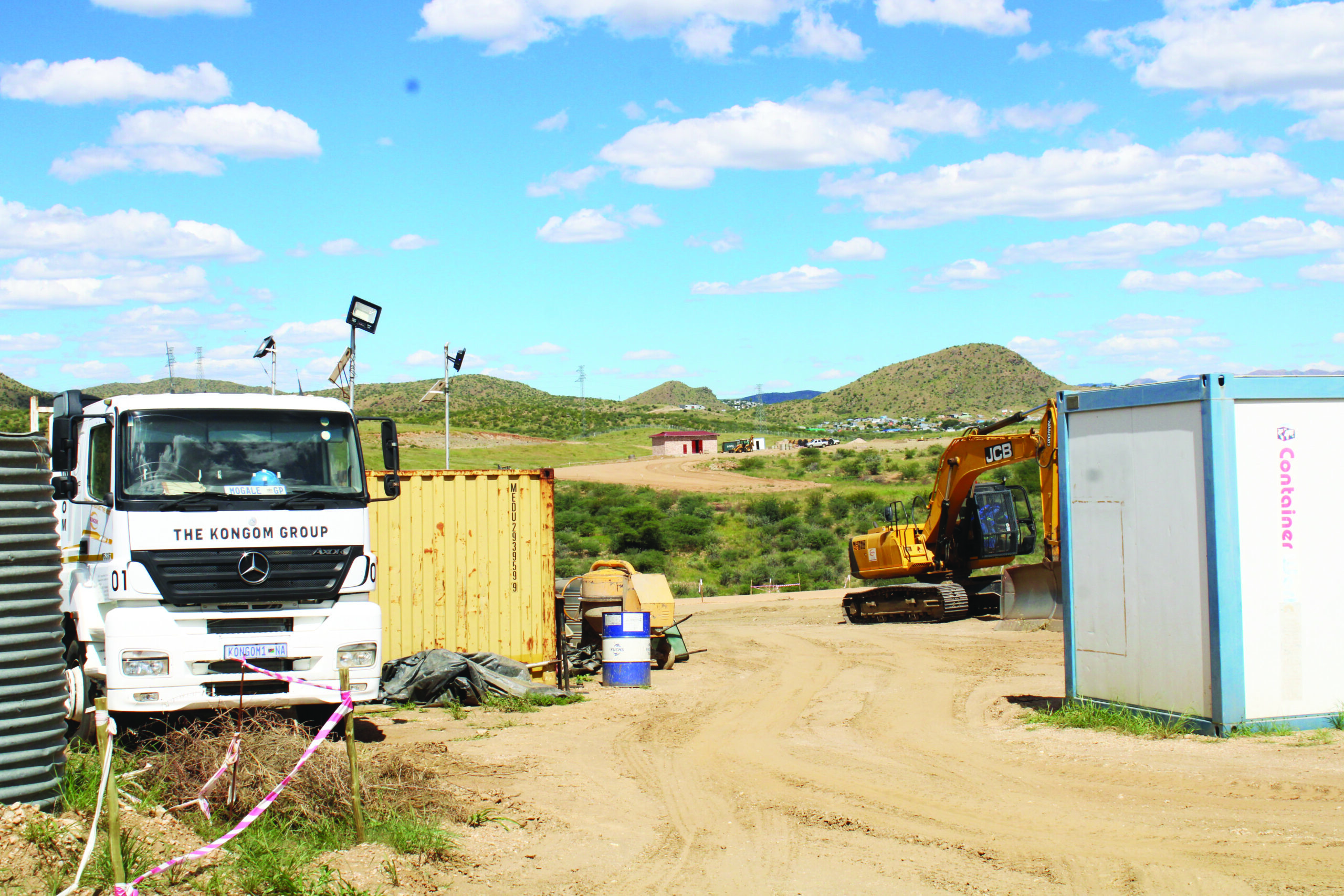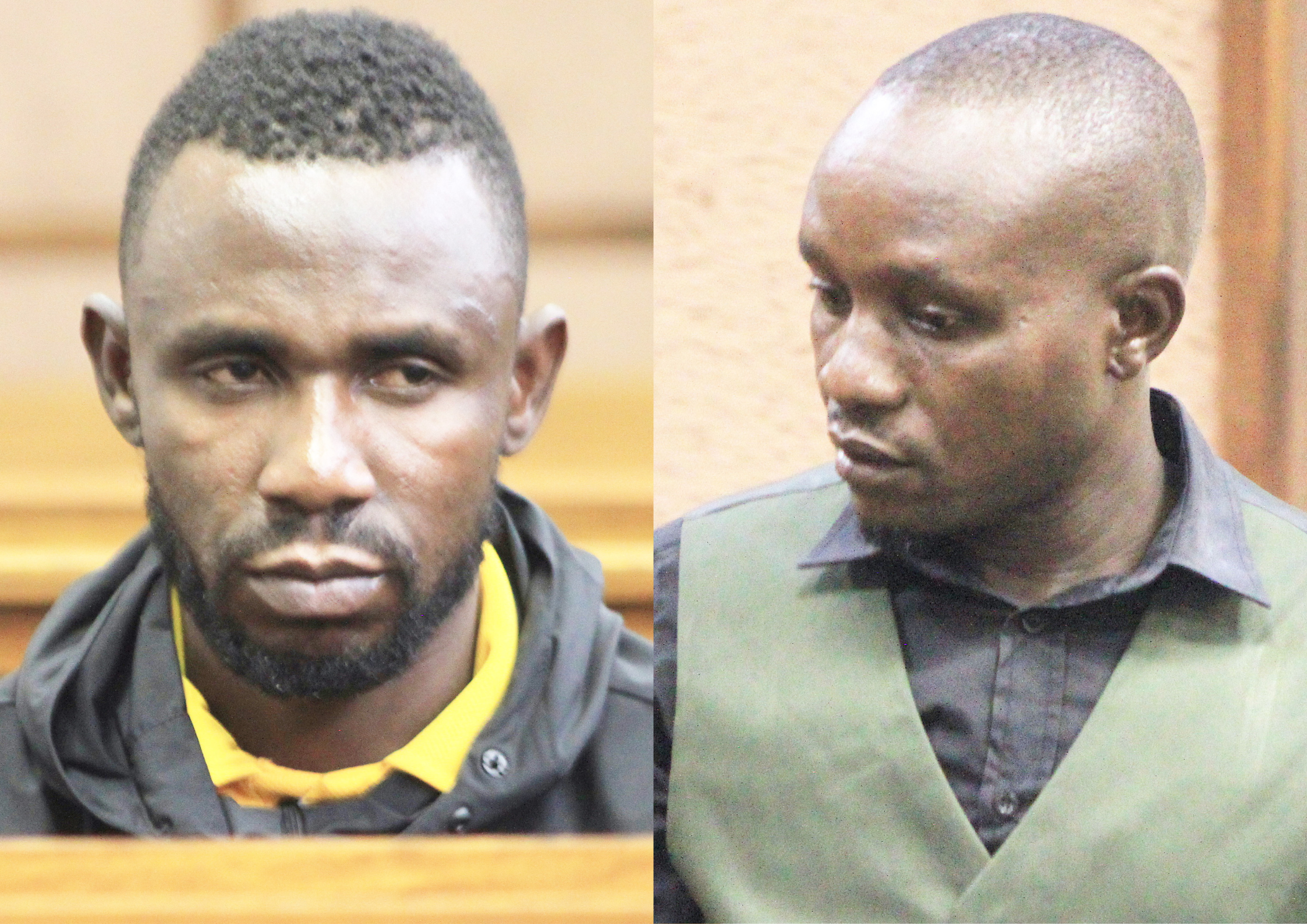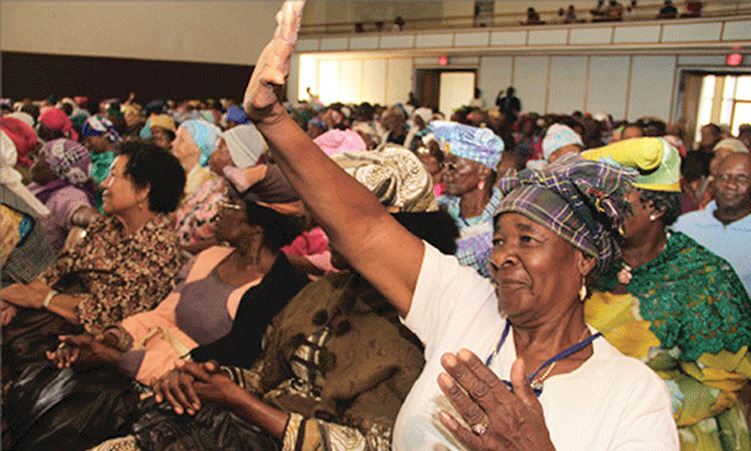• FRANCIOS OLIVIERTHE drought has certainly taken its toll on what was, many years ago, a town that rose to prominence due to its position on an established ox-wagon route halfway between Windhoek and Walvis Bay, and became a trading post which eventually saw it become the administrative centre of the then German South West Africa.
Situated south of Karibib, about 200km west of Windhoek at the junction of the Swakop and Omusema rivers, Otjimbingwe is most certainly not the “place of refreshment” it is popularly known for. At least not now, with the harsh effects of the current drought. It was known as the “place of refreshment” due to the spring in the Omusema River.
The Otjimbingwe settlement – home to at least 3 500 households (roughly 8 000 people) is clearly having a very hard time during this gruesome drought, which parts of the country are faced with. While the visit to the settlement last week was my very first to this historic town, refreshing is definitely not a word to describe the uncomfortably dry experience I encountered.
From skinny dogs, to almost unbearable weather conditions combined with the dry sands, unwelcomed wind and unwanted dying heat from the sun, I fell sorry for the people.
I could see why the Otjimbingwe settlement in the Daures constituency in the Erongo region is classified as one of the areas hardest hit by the drought – officially a drought-stricken area. The 70-kilometre gravel road to the settlement right after the left turn shortly before Karibib from Windhoek already provides an unwanted dry experience, which probably has inhabitants praying even harder for rain than most others in the country. From carcasses along the road of animals that have died from hunger, to trees so naked of leaves and an outlook of a very heartbreaking dry vegetation, this part of the country resembles a cry for showers from the heavens.
My conversation with the chief regional officer of the Erongo region, Nathalia /Gôagoses, was one sad story when she shed more light on the situation they are faced with, and eventually the impact turns out to be even harsher than what met my eye.
Farmers at the drought-stricken area have according to her, lost a combined income of more than N$10 million since November last year due to the drought. Close to 1 400 cattle, about 2 500 goats and roughly 3 300 sheep have died over the past nine months. All I could see with these stats revealed to me was the mountains of food, and of course all the money lost through these animal deaths.
“These people make a livelihood through farming. It is a farming community. About 6 000 communal farmers are affected by the drought in Erongo at large, where farming is the prime source of income for most residents. So, you can imagine the trauma they are faced with during this trying time, a very challenging time indeed. Generally, all economic challenges, also including unemployment, are worsened by the drought,” said a concerned /Gôagoses when I asked her how things are going. She added that some farmers are now grazing their livestock along public roads in a desperate attempt to save their only source of income.
Some relieving news shared by/Gôagoses was that of Prime Minister Saara Kuugongelwa’s office’s helping hand in feeding those harshest affected.
According to /Gôagoses, a vulnerability assessment identified at least 1 500 households hardest hit by the drought, who now receive maize from the Prime Minister’s Office on a monthly basis.
Once a month, each of the identified 1 500 households receive two to three kilogrammes of maize, depending on the number of people in the household. I was also told that over three million cans of fish were donated by government over the past few weeks in contributing towards mitigating the effects of the current hunger nationally. Such refreshing news amongst all this sadness.
And while the chairperson of the Erongo Regional Council, Hafeni Ndemula, is grateful for government’s efforts and support, he is, however, concerned about the livestock dying at such a consistently high pace in the area. At a recent event at Otjimbingwe, which saw the handing over of a generous donation of 8 250 cans of fish by Hangana Seafood through the Ministry of Fisheries and Marine Resources, Ndemula called on business people to lend a hand in contributing to the feeding of livestock in the Daures constituency at large. The Erongo regional committee, according to Ndemula, also set aside N$1 million to assist the drought-stricken area.
Now, I must admit that while all these kind gestures and support bring light in the midst of all this darkness, ultimately my experience at the Otjimbingwe settlement was one of an eye-opener in terms of how serious the drought actually is. I mean, here in Windhoek we are aware of the water scarcity, and while some, or I would like to believe, most of us, abide by the call to save as much water as we can, I don’t think we really experience it as harshly as some of our fellow Namibians. I have also not prayed as hard as I do now for rain after my visit to this settlement. And I realise that I have seen but one of these several drought-stricken areas, and cannot begin to imagine the entire combined impact on all areas which suffer from this ordeal.
In an age of information overload, Sunrise is The Namibian’s morning briefing, delivered at 6h00 from Monday to Friday. It offers a curated rundown of the most important stories from the past 24 hours – occasionally with a light, witty touch. It’s an essential way to stay informed. Subscribe and join our newsletter community.

The Namibian uses AI tools to assist with improved quality, accuracy and efficiency, while maintaining editorial oversight and journalistic integrity.
Stay informed with The Namibian – your source for credible journalism. Get in-depth reporting and opinions for
only N$85 a month. Invest in journalism, invest in democracy –
Subscribe Now!




